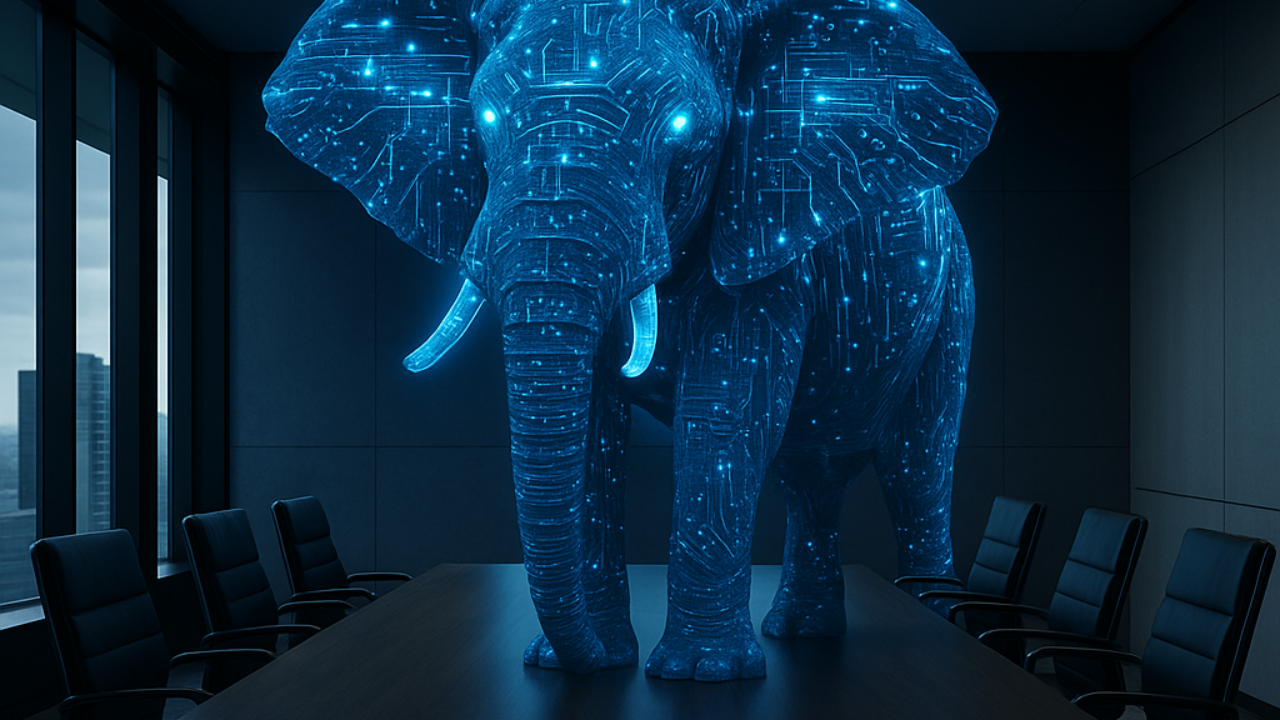The AI Elephant in the Room: It's Bigger Than You Think
Oct 08, 2025
The Leadership Digest - Insights on leadership, mindset, and performance to help you stay ahead
By Dr. Gregory Haughton
In my Olympic career, I learned that the most significant threats aren't always the most obvious ones. Sometimes it's the competitor you underestimate. Sometimes it's the weather conditions that change between warm-ups and the race. And sometimes, it's technology that revolutionizes your sport while you're not paying attention.
Today, that technology is Artificial Intelligence, and it's not just changing one industry. It's reshaping the entire landscape of work as we know it.
Here's what I've observed from working with executives across various industries: most leaders still treat AI as a distant concern or a tool for the tech department. But AI isn't waiting for us to get comfortable with it. It's already here, embedded in the daily operations of marketing teams, financial analysts, HR departments, and countless other functions.
This reminds me of a lesson I learned early in my athletic career. When new training methods or technologies emerged in track and field, the athletes who adapted quickly gained a competitive advantage. Those who waited or dismissed the changes found themselves left behind, not because they lacked talent, but because they failed to adapt to the evolving sport.
The AI revolution is fundamentally different from previous technological shifts I've witnessed in my business career. The internet and industrial automation primarily replaced manual and clerical tasks. AI is beginning to automate cognitive work, the thinking, analyzing, and decision-making that we've always considered uniquely human.
This isn't about humans versus machines.
In my experience training with cutting-edge sports technology, the goal was never to compete against the technology; it was to leverage it to enhance human performance. The same principle applies here.
Through my Six-Stage Leadership Mentorium™, I work with leaders who are successfully navigating this transition. They understand that the question isn't if AI will impact their teams and industries, but how they can prepare their organizations to thrive alongside it.
The leaders who will succeed in this new era are those who approach AI with the same mindset that Olympic athletes bring to new training methods: curiosity, strategic thinking, and a commitment to continuous improvement.
In my next article, I'll share what I've learned about the psychology of leading through significant transitions. These lessons apply whether you're preparing for the Olympics or preparing your team for an AI-driven future.
What's one area of your work where you're already seeing AI's impact? I'd love to hear your observations in the comments.
Dr. Gregory Haughton, Ph.D. Three-Time Olympic Medalist | Leadership Strategist | Founder of the Six-Stage Leadership Mentorium™
Follow new blog posts and updates!
Join our mailing list to receive the latest blog posts and updates from Dr. Greg.
Don't worry, your information will not be shared.
We hate SPAM. We will never sell your information, for any reason.

